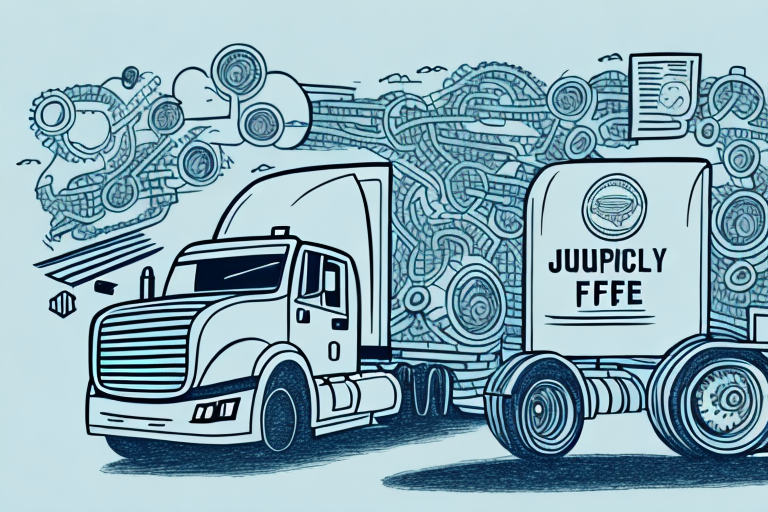Understanding Carriers and Shippers in Logistics
In the logistics industry, carriers and shippers play distinct yet complementary roles. While often used interchangeably, these terms denote different responsibilities and functions essential for the smooth transportation of goods.
The Role of Carriers
Carriers are the entities responsible for the physical transportation of goods from one location to another. They own and operate the vehicles, planes, ships, or trains that move products. Carriers can be categorized as:
- Asset-Based Carriers: These carriers own the transportation assets they use. Examples include major trucking companies, airlines, and shipping lines.
- Non-Asset-Based Carriers: Also known as brokers, these carriers do not own transportation assets but connect shippers with available carriers.
Carriers operate on established routes with specific schedules and must adhere to stringent regulations regarding safety, weight limits, and environmental standards. Additionally, they often utilize advanced technologies for real-time shipment tracking, enhancing transparency and efficiency in the supply chain.
The Role of Shippers
Shippers are the businesses or individuals that need to move goods from one location to another. They can be manufacturers, retailers, or distributors who arrange for transportation by hiring carriers. Key responsibilities of shippers include:
- Packaging and Labeling: Ensuring that goods are properly packaged and labeled to meet transportation and regulatory requirements.
- Documentation: Providing accurate and complete shipping documents to facilitate smooth transit and compliance with import/export regulations.
- Route Planning: Determining the most efficient and cost-effective routes based on factors like distance, delivery timelines, and product sensitivity.
- Inventory Management: Balancing inventory levels to meet customer demand without incurring excessive storage costs.
Advantages and Disadvantages of Carriers vs. Shippers
Choosing between working directly with a carrier or using a shipper involves weighing various pros and cons:
Advantages of Carriers
- Established Networks: Carriers often have extensive logistics networks, ensuring reliable and timely deliveries.
- Expertise: Specialized knowledge in transportation regulations and best practices can lead to more efficient shipping processes.
- Value-Added Services: Many carriers offer additional services such as warehousing, packaging, and customs clearance.
Disadvantages of Carriers
- Cost: Hiring carriers can be more expensive due to their operational costs and profit margins.
- Limited Flexibility: Carriers may have fixed routes and schedules, potentially limiting customization for specific shipment needs.
Advantages of Shippers
- Flexibility: Shippers can collaborate with multiple carriers to find the best shipping options tailored to individual shipments.
- Cost Efficiency: By negotiating with various carriers, shippers can often secure more competitive pricing.
- Personalized Service: Shippers may offer more customized solutions and attentive customer service.
Disadvantages of Shippers
- Experience: Shippers might lack the extensive transportation expertise that carriers possess, potentially leading to inefficiencies.
- Insurance Coverage: Shippers may not provide the same level of insurance coverage as carriers, increasing the risk of loss or damage.
Factors to Consider When Choosing Between Carriers and Shippers
Selecting the right transportation partner involves evaluating several key factors:
- Type of Goods: Perishable, fragile, or hazardous materials may require specialized carriers or handling procedures.
- Shipment Size and Weight: Larger or heavier shipments might necessitate carriers with specific equipment or capabilities.
- Delivery Timeline: Time-sensitive shipments may benefit from carriers with expedited services.
- Geographic Reach: The carrier's network should align with the shipment's origin and destination locations.
- Cost: Budget constraints will influence whether to prioritize cost savings or other factors like speed and reliability.
- Customer Service: Reliable communication and support are crucial for addressing any issues that arise during transit.
- Sustainability: Businesses increasingly consider the environmental impact of their shipping choices, favoring carriers with eco-friendly practices.
Legal Obligations of Carriers and Shippers
Both carriers and shippers must adhere to various legal requirements to operate within the logistics industry:
Carriers' Legal Responsibilities
- Compliance with Safety Regulations: Adhering to laws governing vehicle standards, driver working hours, and load security.
- Insurance Coverage: Maintaining adequate insurance to cover potential damages or losses during transportation.
- Environmental Standards: Meeting regulations aimed at reducing the environmental footprint of transportation operations.
Shippers' Legal Responsibilities
- Proper Labeling and Documentation: Ensuring all goods are correctly labeled and accompanied by necessary shipping documents.
- Regulatory Compliance: Adhering to import/export laws and other relevant regulations based on the nature of the goods.
- Accurate Information: Providing truthful and precise information about the shipment to avoid legal penalties.
Failure to comply with these legal obligations can result in significant penalties, including fines, loss of licenses, and damage to reputation. It's essential for both carriers and shippers to stay informed about current laws and regulations to ensure full compliance.
Importance of Communication Between Carriers and Shippers
Effective communication is the backbone of successful logistics operations. Transparent and consistent interaction between carriers and shippers helps in:
- Accurate Shipment Information: Providing detailed and precise information about shipments to avoid misunderstandings.
- Real-Time Updates: Sharing timely updates regarding shipment status, delays, or any issues that may arise during transit.
- Problem Resolution: Quickly addressing and resolving any problems to minimize disruptions and maintain trust.
Implementing advanced communication tools and platforms can enhance the efficiency and reliability of interactions between carriers and shippers.
Future Trends in Logistics: Carriers and Shippers
The logistics industry is constantly evolving, driven by technological advancements and changing market demands. Key trends shaping the future for carriers and shippers include:
Automation and Artificial Intelligence
Automation and AI are transforming logistics by optimizing route planning, predictive maintenance, and automating routine tasks. These technologies enhance efficiency and reduce operational costs. According to a report by McKinsey & Company, AI has the potential to significantly improve supply chain forecasting and inventory management.
Sustainability and Green Logistics
Environmental concerns are pushing the logistics industry towards more sustainable practices. Carriers and shippers are adopting measures such as using electric vehicles, optimizing routes to reduce fuel consumption, and implementing recycling programs. The Environmental Protection Agency (EPA) emphasizes the importance of sustainable logistics in reducing greenhouse gas emissions.
Resilient and Flexible Supply Chains
The COVID-19 pandemic highlighted the need for more resilient and adaptable supply chains. Carriers and shippers are investing in technologies and strategies that enhance supply chain visibility and flexibility to better respond to disruptions. This includes diversifying transportation modes and leveraging real-time data for better decision-making.
Best Practices and Case Studies
Adopting best practices and learning from successful partnerships can significantly enhance logistics operations:
Best Practices for Working with Carriers and Shippers
- Establish Clear Communication Channels: Define how and when information will be shared to ensure transparency.
- Conduct Due Diligence: Verify carriers' insurance coverage, safety records, and industry reputation before forming partnerships.
- Set Clear Expectations: Outline performance metrics, delivery timelines, and quality standards to align both parties.
- Regularly Evaluate Partnerships: Continuously assess the performance of carriers and shippers to identify areas for improvement.
Case Studies
Successful collaborations between carriers and shippers demonstrate the benefits of strategic partnerships:
Amazon and UPS Partnership
The collaboration between Amazon and UPS has enabled efficient delivery services by leveraging UPS's extensive logistics network. This partnership ensures timely deliveries and enhances customer satisfaction.
Walmart and Schneider Logistics Partnership
The partnership between Walmart and Schneider Logistics has optimized transportation operations, reduced costs, and maintained high levels of service quality through coordinated efforts and advanced logistics solutions.
Conclusion: Choosing the Right Option for Your Business
Deciding between working directly with carriers or utilizing shippers depends on various factors, including the nature of your goods, delivery timelines, budget constraints, and specific logistical needs. Carriers offer established networks and expertise, while shippers provide flexibility and cost-efficiency.
Regardless of the choice, prioritizing clear communication, compliance with legal obligations, and adopting best practices will ensure effective and reliable logistics operations. Staying informed about industry trends and continuously evaluating your logistics strategies will help your business maintain a competitive edge in the ever-evolving market.






















